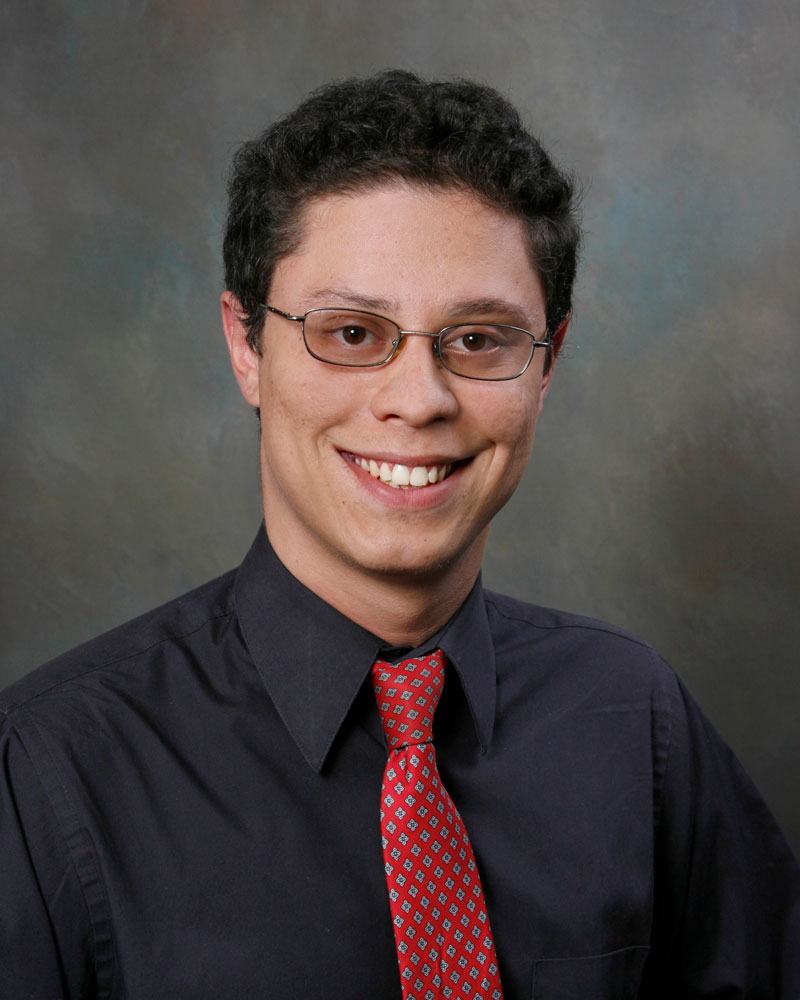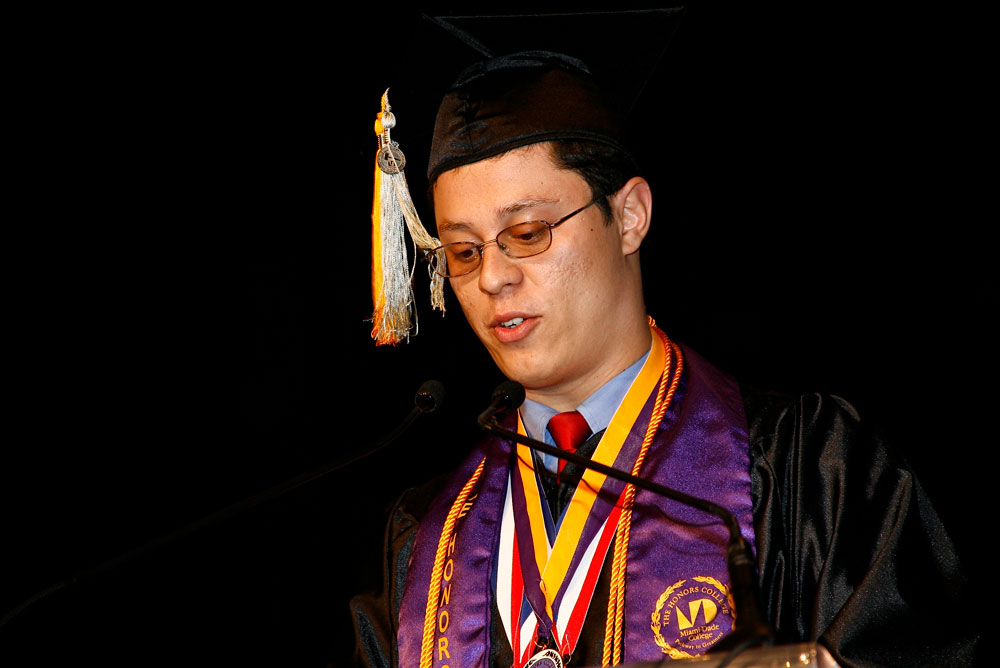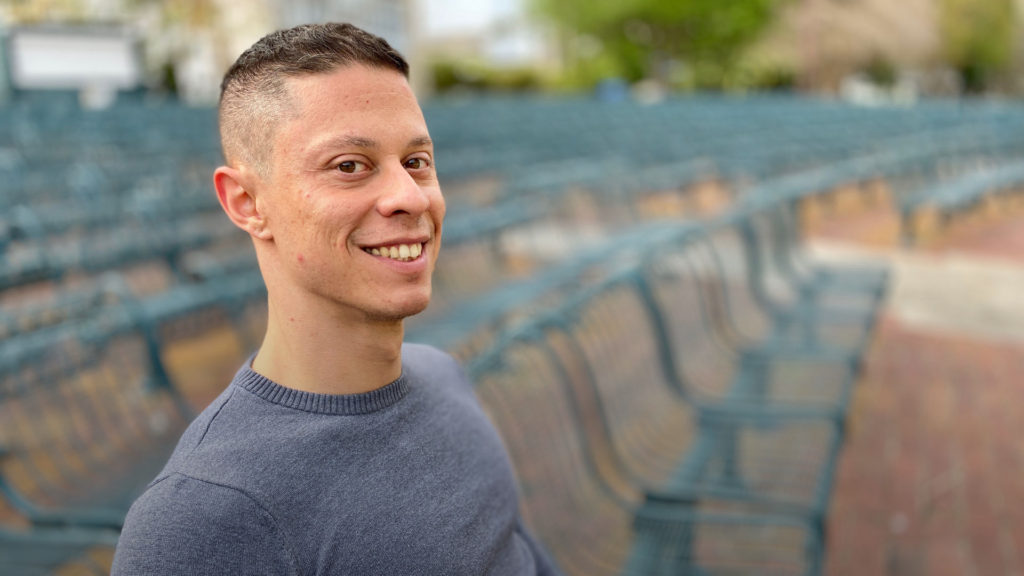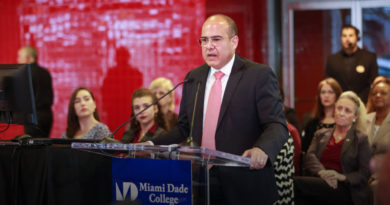He Came To The U.S. With A Broken Suitcase And A Dream—Today He Advocates So Others Can Achieve Theirs
Felipe Sousa-Lazaballet has lived a life of advocacy.
From fighting for immigrants’ rights as the former Student Government Association President at Wolfson Campus to supporting social change organizations across the world, advocating for marginalized communities has always been his mission.
Now, the 35-year-old is serving the LGBTQ+ community as the Inclusion, Diversity and Equity Senior Specialist for Orlando Mayor Buddy Dyer.
“I have dedicated my life to fighting against systems designed to dehumanize people like me,” Sousa-Lazaballet said. “My personal experience as a queer immigrant has made me an empathetic and collaborative leader. Whether it was as a volunteer or in executive teams, I have never lost sight of a simple truth—our communities deserve the right to thrive, and that begins with absolutely nothing less than full justice.”
Chasing The American Dream

Sousa-Lazaballet was born in Duque de Caxias, Brazil in 1986. He came to Miami when he was 14, but after his visa expired in 2001—making him an undocumented immigrant—he felt his dream slipping away.
After he graduated from Dr. Michael M. Krop High School in 2005, his immigration status made him ineligible for most scholarships.
He enrolled at Miami Dade College after a friend told him undocumented students could receive financial aid there. The Wolfson Campus Honors College, which pays students’ full in-state tuition, admitted him in 2006. However, Sousa-Lazaballet was considered an international student and had to pay out-of-state tuition. The scholarship only covered one-third of the cost.
“I used to work at night in a restaurant in Aventura [to pay the rest of tuition],” Sousa-Lazaballet said. “Getting kicked out of the Honors College was not an option for me so I was juggling school work, student government, and work at night.”
Sousa-Lazaballet did not let the challenge deter him. He became SGA president at Wolfson Campus during the 2007-08 academic year, focusing on issues like immigration and LGBTQ+ rights.
His efforts focused on galvanizing student leaders to take a unified stance in favor of the DREAM Act, which grants temporary residency with the right to work to unauthorized immigrants who entered the U.S. as minors.
“I came to MDC at a time in my life when no one believed in me. But MDC did,” said Sousa-Lazaballet, who graduated from the College in 2008 with an associate’s degree in international relations. “[They] trusted my leadership, and because of that, I am who I am today. I wouldn’t have been able to go to college if it wasn’t for [MDC].”
Teresa Reigosa, who served as Wolfson Campus’ student life director when Sousa-Lazaballet was SGA president, says he created a platform that allowed undocumented students to discuss the problems they were experiencing.
“He hits the ground running; he rolls up his sleeves,” Reigosa said. “He knows how to communicate to groups that may be challenging his ideas because his demeanor and approach were very welcoming.”
A Journey Of Advocacy
On Jan. 1, 2010, he co-organized a 1,500-mile walk—titled The Trail of Dreams—from the Freedom Tower in Miami to Washington, D.C. to support the passing of the DREAM Act.
The walk, which gained national attention, ended five months later on May 1.
“We were able to pressure President [Barack] Obama and his administration to create DACA [Deferred Action for Childhood Arrivals],” Sousa-Lazaballet said. “This walk was a catalyst [in terms of] planning and creating a campaign to push Obama to do the right thing.”
In 2012, after earning a bachelor’s degree in business from St. Thomas University, he became co-director of GetEQUAL, an organization that seeks to empower the LGBTQ+ community. He fought for the Employment Non-Discrimination Act, which prohibits employers from discriminating against employees based on sexual orientation, and influenced President Obama to sign an executive order that outlawed employment discrimination in companies with a federal contract.
Three years later, Sousa-Lazaballet joined the software company ThoughtWorks in New York as director of strategic partnerships for their Office of Social Change Initiative. His job focused on supporting organizations that were involved with social movements in countries like India, Latin America and the U.S.
But the 2016 shooting at Pulse, a gay nightclub in Orlando, that resulted in a gunman killing 49 people and injuring 58, pulled him back to Florida.
“Gay clubs are like churches for the LGBTQ community,” Sousa-Lazaballet said. “It’s a place for community-building and where you don’t have to be afraid of homophobia. I am Latino so I felt hurt; it felt like a call to action.”
With the help of the Arcus Foundation—the largest LGBTQ+ foundation in the nation—Sousa-Lazaballet and a group of friends raised two million dollars and created Contigo Fund, an organization that awards grants to nonprofits in Orlando trying to achieve equality for racial minorities and the LGBTQ+ community in Central Florida.
Getting Political
Sousa-Lazaballet’s work with the Contigo Fund caught the attention of the office of Orlando Mayor Buddy Dyer. They were searching for guidance to build the Orlando United Assistance Center to help those impacted by the Pulse shooting.
In 2017, he began working as manager of collaborative partnerships, putting together services for the victims of the shooting at Pulse. A year later, he was promoted to Inclusion, Diversity and Equity Senior Specialist for the Office of Multicultural Affairs.
Some of the people he helps are the immigrant, refugee, religious—with a focus on Muslims—and LGBTQ+ communities. This includes creating a resolution that supports LGBTQ+ business owners in Orlando, designing policies to support local immigrants and implementing programs during Ramadan (a month of fasting, prayer and reflection for Muslims).
“He is a determined and loving person,” said Giorgina Pinedo-Rolon, Sousa-Lazaballet’s supervisor. “When you hear his story about his journey, you can see his passion all throughout. He doesn’t take no for an answer. He is very persistent on the issues that need to be addressed.”
Through it all, Sousa-Lazaballet has remained persistent in reaching his own goals. In March, he became a United States citizen.
“Every time I go to City Hall and use my employee ID to open the door, I remember the 14-year-old who arrived in the U.S. with a broken suitcase that I dragged through Miami [International] Airport,” Sousa-Lazaballet said. “I work really hard to make sure everyone in the city has the same opportunity to thrive.”





